
2021/3/19
イベントレポート
2021年1月23日(土) Saturday, January 23, 2021
多文化共生に関する理解を深め、人と人、コミュニティ間のつながりをより強めるきっかけとして、「神戸コミュニティフォーラム」を開催しました。
2016年からはじまり今回で5回目となるフォーラムは「やさしい日本語」をテーマに、やさしい日本語を神戸に普及させ、神戸を外国人が住みやすい街にすることを目的として行われました。
The Kobe Community Forum provides the opportunity for the residents of Kobe to better understand each other’s cultures, as well as to strengthen the connections between individuals and different communities.
This event was first held in 2016, and the theme for the 5th forum was “simple Japanese”, with the aim of promoting the use of simple Japanese in order to make Kobe a more livable city for foreign residents.
始めに、久元市長からの挨拶です。神戸市における外国人住民数は約48,000人で現在も増加中で、外国人と日本人ともに生活しやすい街づくりが欠かせないこと、その一環として本フォーラムを開始したことを説明した後、ここで生まれたアイデアは神戸市で着々と実を結びつつあると話しました。たとえば昨年出た「駅や公共施設において、様々な国の文化や情報を発信して外国人と日本人のコミュニケーションを促進する」という案は、現在「神戸うわさプロジェクト」での展開にむけて議論が進められています。
本フォーラムのテーマは「Promoting ‘simple Japanese’ to make Kobe a livable city for foreign residents (やさしい日本語を神戸に普及させ、神戸を外国人が住みやすい街にする)」で、やさしい日本語の活用により日本人と外国人の相互理解が深まる暮らしやすい街づくりに向けて何ができるか、活発な議論を期待していますと話しました。
The event began with a video message from the mayor of Kobe. In his speech, Mayor Hisamoto mentioned that about 48,000 foreign nationals live in Kobe and are growing, and he stressed the importance of turning our city into one that is livable for both Japanese and non-Japanese residents. He explained the beginnings of this forum as one part of the city’s efforts towards multicultural livability, and how the ideas generated from this event will eventually bear fruit. For example, last year’s topic was “Promoting communication between Japanese and non-Japanese people by using public spaces as venues for sharing information and culture from different countries”, which led to discussions to begin the Kobe Rumors Project (Japanese link).
This year’s forum topic was “Promoting ‘simple Japanese’ to make Kobe a livable city for foreign residents”, and Mayor Hisamoto expressed his hope for active discussions among the participants about how we can utilize simple Japanese to deepen mutual understanding between the Japanese and non-Japanese residents of Kobe, and thereby make Kobe a more livable city.
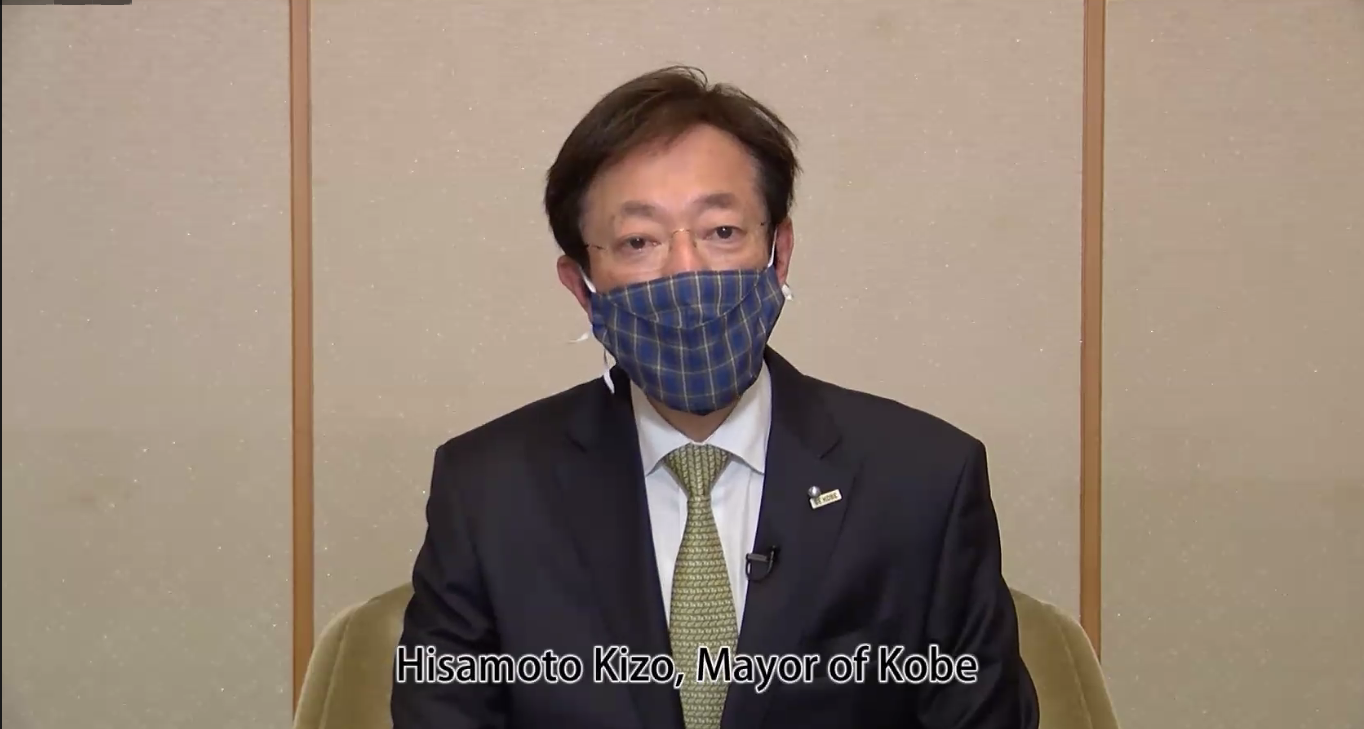
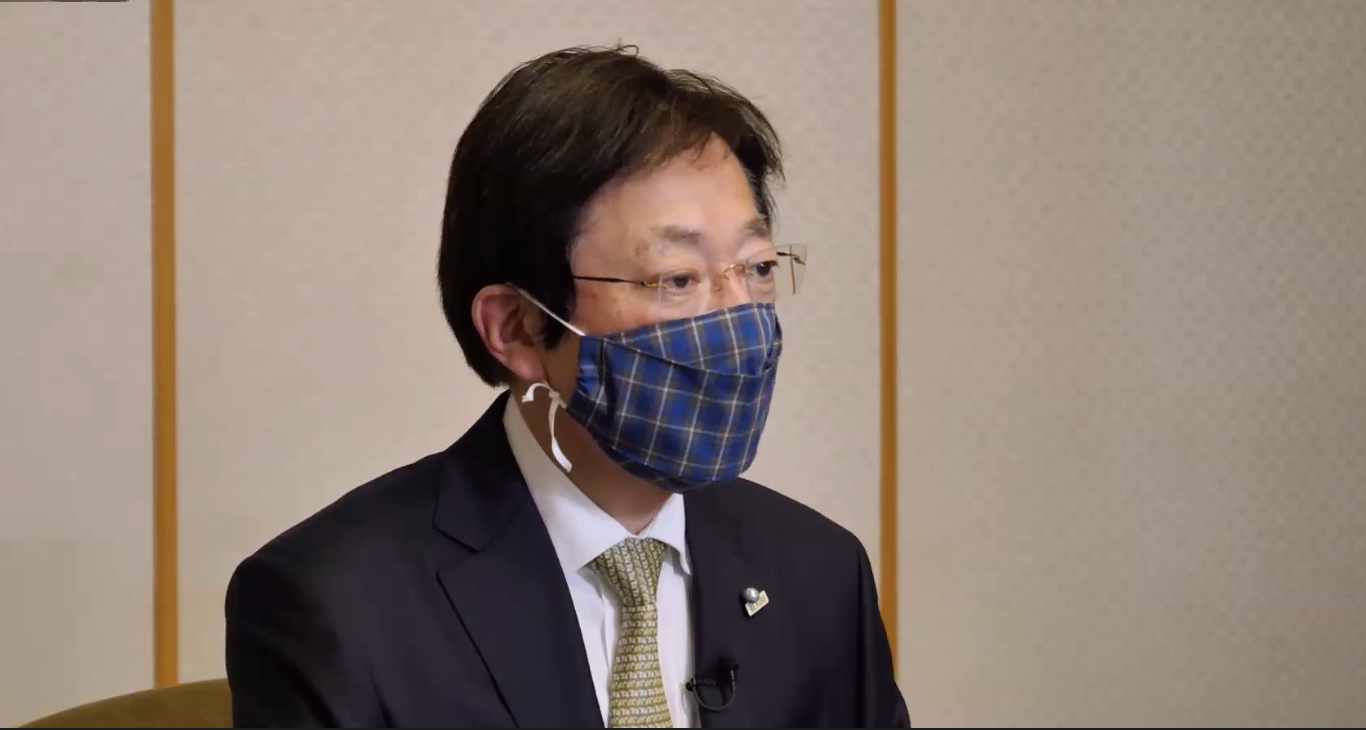
次に『「やさしい日本語」とは』と題し、神戸大学国際教育総合センター准教授 齊藤美穂先生の基調講演がありました。前段として2つの文章を比較しながら、「やさしい日本語」とは“簡単な構造で、平易な言葉で、必要に応じて補足情報があり、できるだけ漢字を使用しない(使用する際は振り仮名がついている)”文章であるとご説明頂きました。
また「やさしい日本語」は阪神・淡路大震災の際、外国人住民が理解できる緊急情報の発信が不十分であったことをきっかけに生まれ拡がったもので、情報が迅速に、正確に、簡単、誰もがわかる日本語で地域のすべての人に届けられることが求められています。
多言語、もしくは英語で情報を提供すればよいのではと考える人がいるかもしれませんが、外国人住民が非常に多国籍化していること、また日常において問題なく理解できる言語が日本語だという方が英語と答えた方より多いという調査結果が出ていることを踏まえても、「やさしい日本語」の重要性が伺えます。
また「やさしい日本語」は“すべての人”に理解できる日本語であることが大切ですが、”すべて”は外国人だけでなく、子どもを筆頭に日本人も含まれます。つまり「やさしい日本語」でコミュニケーションすることは、多文化共生の理念にも則しているのです。
最後にやさしい日本語を導入・活用するにあたり、その他の利点や、逆に問題点がないかをこの後議論してほしいとお話され、講演が終わりました。
The mayor’s message was followed by a keynote lecture by Miho Saito, an Associate Professor at Kobe University’s Center for International Education. “What is simple Japanese?” As an introduction, she presented two short excerpts of text for comparison and explained that the text with simple Japanese was distinguished by a simple structure and familiar words (plain language), included supplemental information if necessary, and avoided the use of kanji (Chinese characters) as much as possible (or included phonetic readings if kanji were used).
Simple Japanese found its origins in the 1995 Great Hanshin-Awaji Earthquake (sometimes referred to as the Kobe Earthquake). After the quake, people realized that the information being shared which foreign residents could understand was insufficient, and that it was important to be able to share information with everyone as quickly, accurately, and briefly as possible while using Japanese language that was comprehensible to everyone.
Many people might think that this kind of information should be shared in multiple languages, or at least in English. However, there are an ever-increasing variety of nationalities living in Japan, and in a survey more foreign residents were comfortable with using Japanese in their daily lives than English. Taking these two factors into consideration, one can see the importance of simple Japanese.
Another thing to consider is that “simple Japanese” is Japanese language which is comprehensible to everyone. Simple Japanese is not just for foreign residents, but for children and other Japanese people too. This means that using simple Japanese to communicate is in line with the concept of intercultural cohesion.
At the end of her presentation, Professor Saito asked the audience to think about the advantages and disadvantages of using simple Japanese, and to express those ideas in the discussions that would follow.
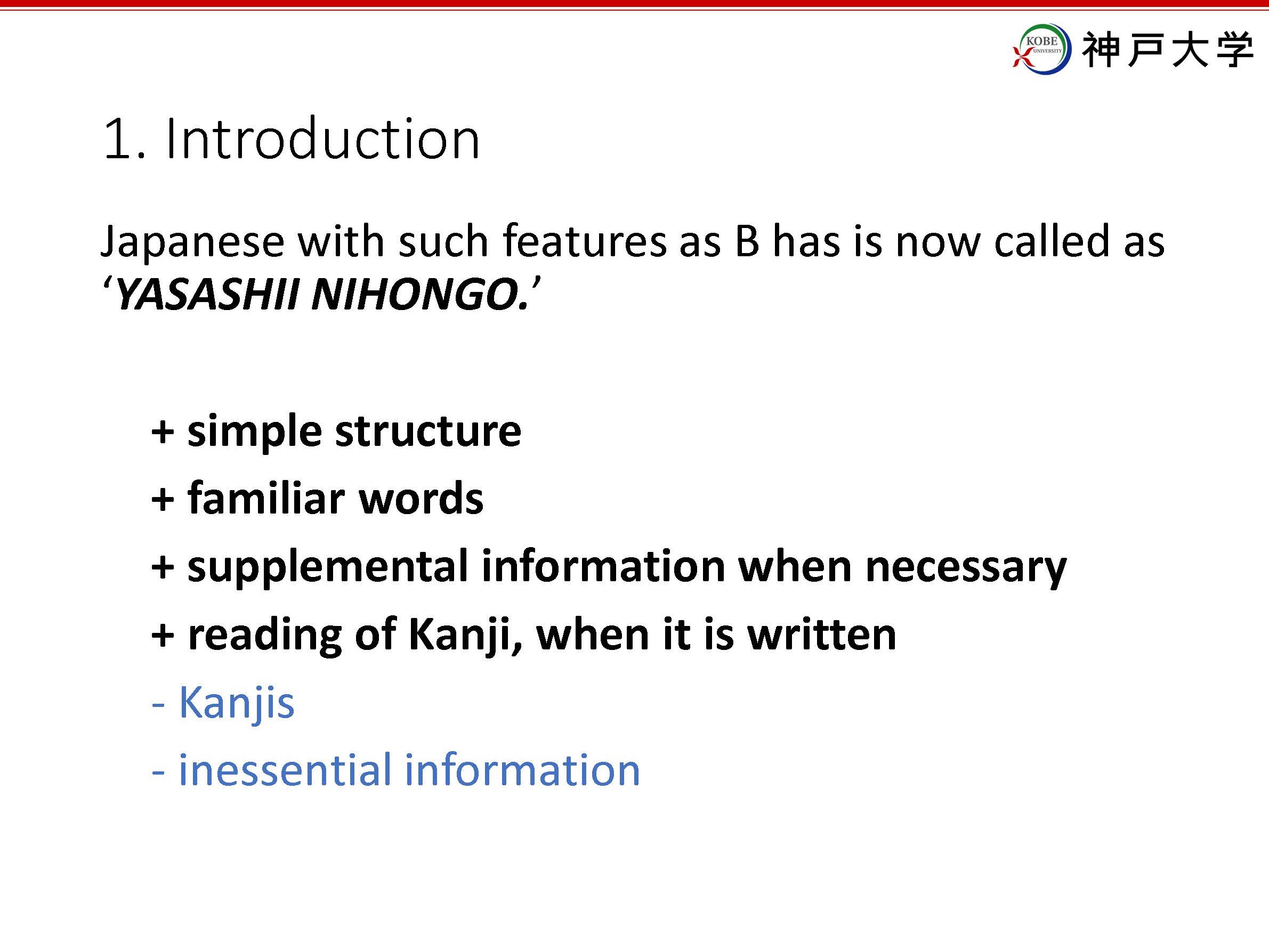
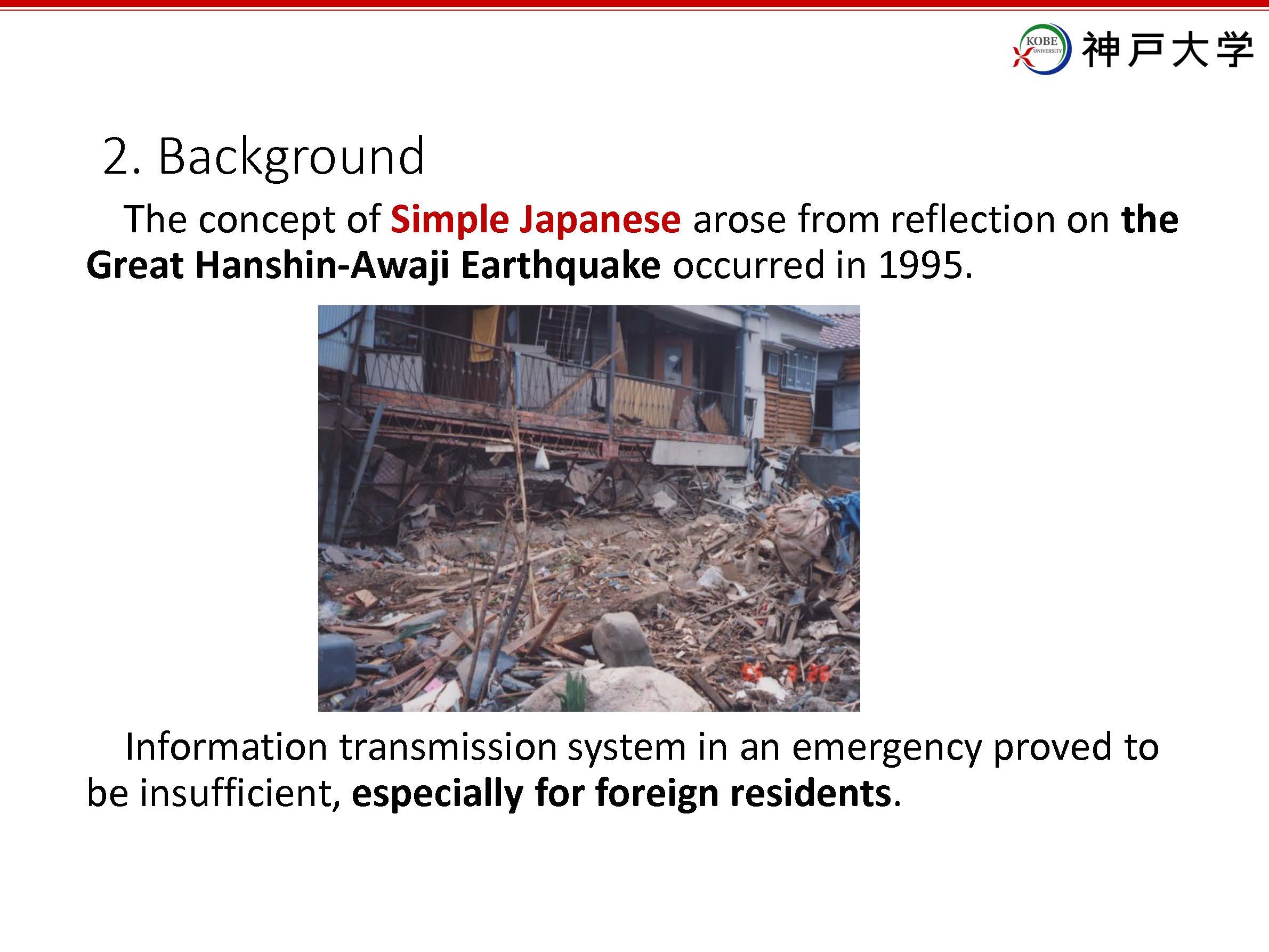
「やさしい日本語」の概要を学んだ後は、神戸市国際課のソン・ジョイさんより神戸市の取組紹介です。
KICCや市職員向けセミナー、役所など神戸の様々な場所で、外国人に情報を提供する一手段として「やさしい日本語」が使用されていますが、その促進において、神戸市では現在“モデルオフィスで実装する”という段階にあります。中央区役所の保険年金医療課において、誰もが関係するものの、理解するのが非常に難しく問合せも多い保険や年金、医療費関連の文書を「やさしい日本語」を使用したものに改善しています。
また、新聞を読む習慣のない比較的若年層をターゲットにしたメディアサイト「withnews」でも「やさしい日本語」の重要性理解と意識付けを促しています。神戸市と「withnews」の共同企画記事である「#役所をやさしく」では、神戸市の「やさしい日本語推進プロジェクト」に携わるスタッフが登場するドキュメンタリー風インタビューシリーズとなっています。
この後のディスカッションでは今回紹介した以外の「やさしい日本語」についても沢山議論してほしい、また日本人住民は「やさしい日本語」の活用に向けて出来ることを考えてほしいと話しました。
After we learned the basics of simple Japanese, Joy Sung from the Kobe City International Department talked about the city’s initiatives to incorporate simple Japanese.
Simple Japanese is currently being used at the Kobe International Community Center, ward offices, and city employee professional development seminars as one way of conveying information to foreign residents. To further promote simple Japanese, the city is currently implementing a “model office”. Health insurance, pension, and medical expenses are relevant to all city residents but can be extremely difficult to understand, and there are many inquiries about these, so some of the documents at the Social Insurance and Medical Expenses Division of the Chuo Ward Office are being converted into versions written in simple Japanese.
The city is also working to promote awareness and understanding of the importance of simple Japanese through withnews (Japanese link), a media site that targets people who do not normally read the newspaper, especially younger generations. A collaboration with withnews, #Yakusho o Yasashiku (“Simplifying the City Office”) (Japanese link) is a documentary-like series of interviews with government staff involved in Kobe City’s Simple Japanese Promotion Project.
Ms. Sung asked the forum participants to think of many other ways to introduce simple Japanese, and for the Japanese participants in particular to think about ways they can try to incorporate simple Japanese in their lives.
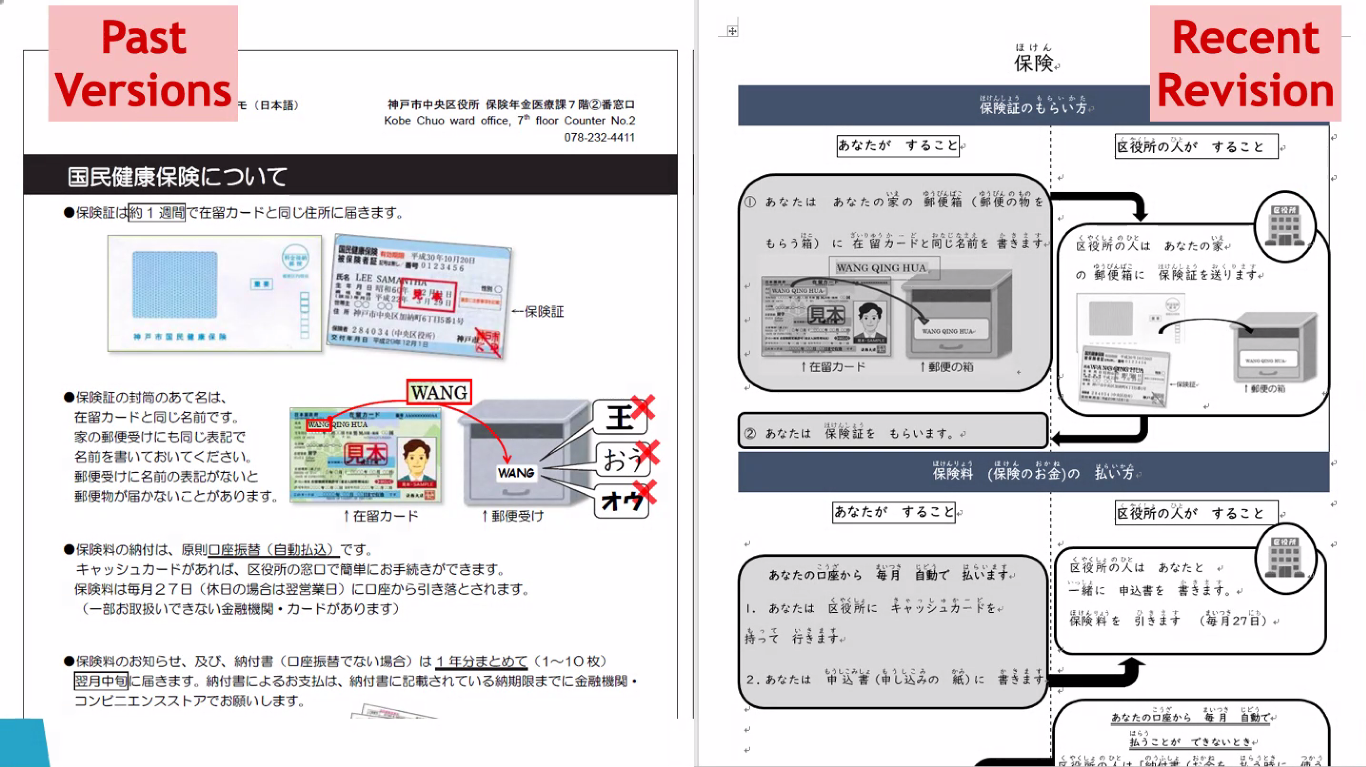
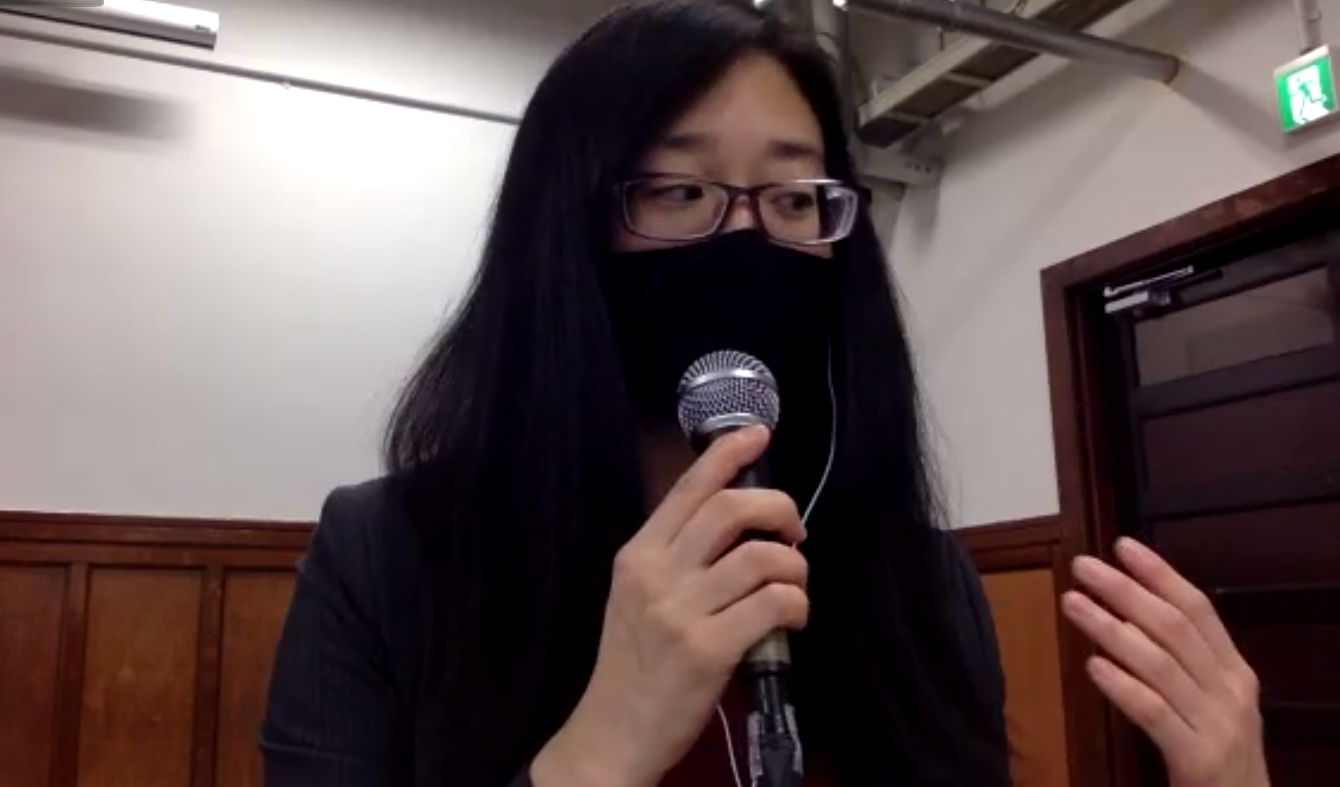
いよいよグループディスカッションに移ります。7か国計29名が参加したディスカッションでは、葺合高校生がファシリテーターと発表を務めました。4つのグループに分かれた後、
まず「やさしい日本語を知っていますか」をテーマとして自己紹介を皮切りに議論をはじめ、以下の発表がされました。
The forum moved on to group discussion sessions, which had 29 participants from 9 different countries. The students from Fukiai Senior High School acted as discussion facilitators and would present the results of their groups’ discussions. The participants were divided into 4 groups, and they began with brief self-introductions followed by their first topic, “Did you know about simple Japanese?” These were their thoughts and comments:
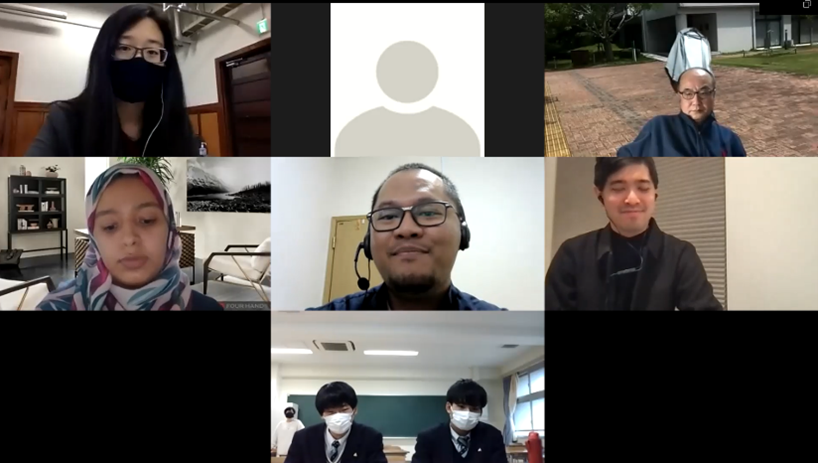
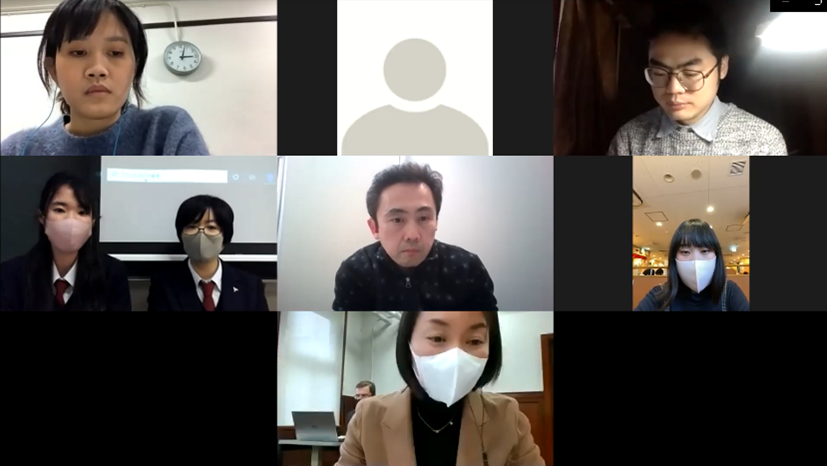
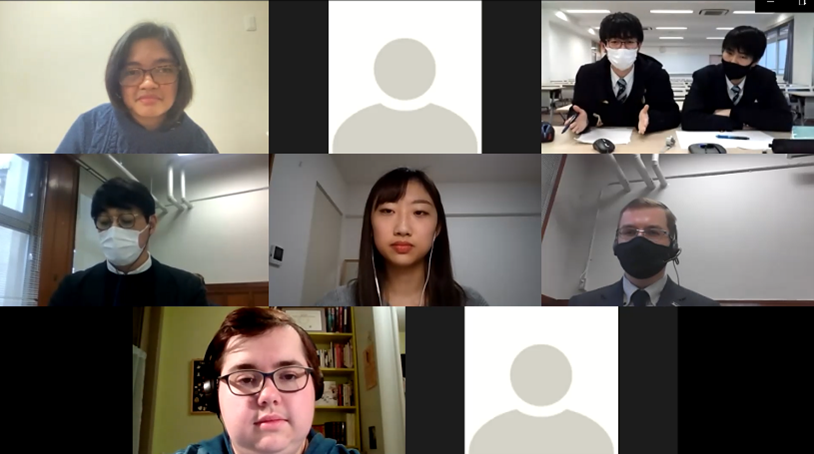
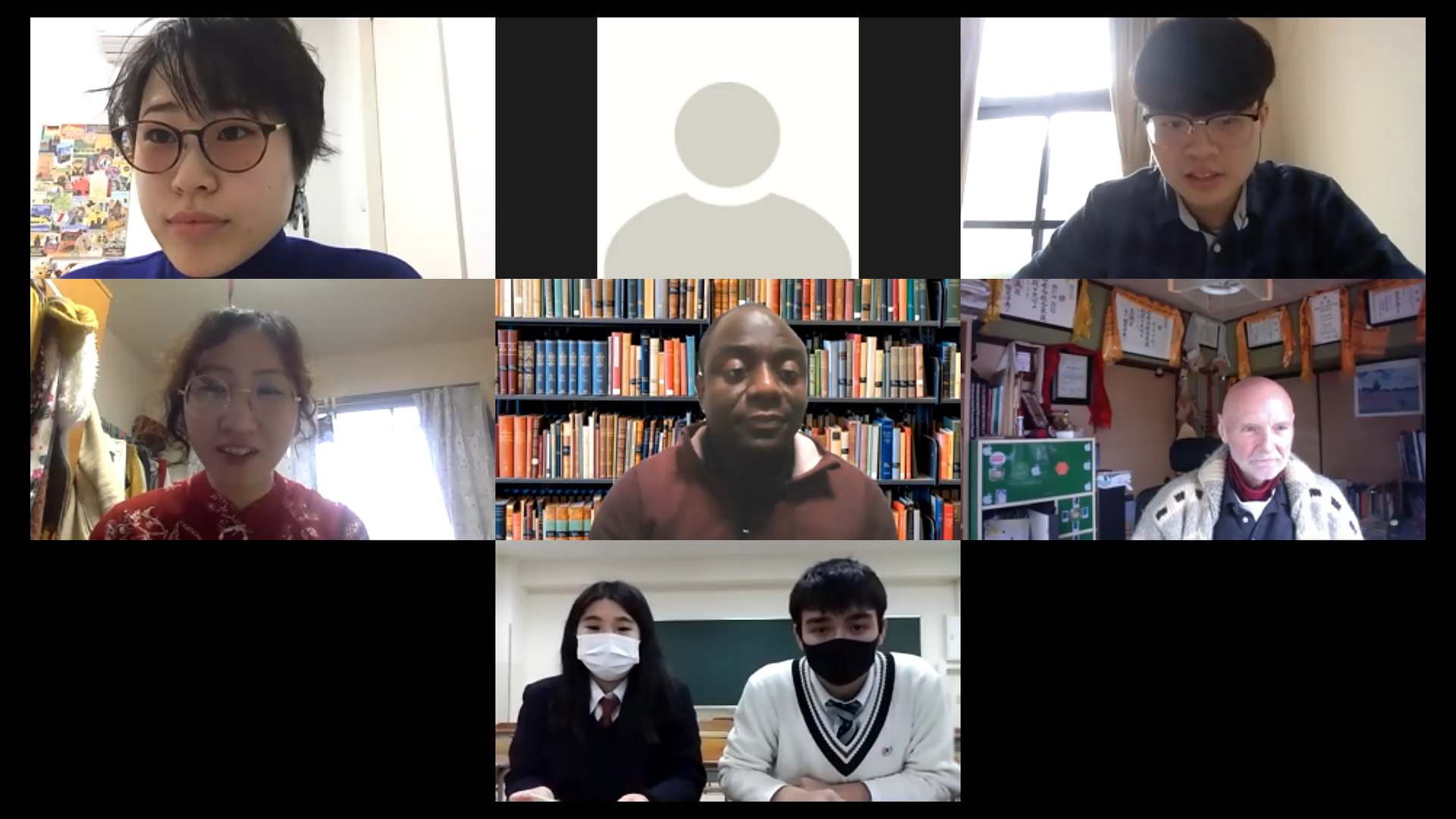
Aグループ:医療等専門分野での「やさしい日本語」使用、「やさしい日本語」自体の改善の必要性。
Bグループ:ほぼ全員が知っていた。友達などの外国人や友人との会話における言葉の置き換え推奨。
Cグループ:誰もが知っている言葉ではなかった。ふりがなの必要性、また翻訳機能を活用する上でも、単純な文法構造や言葉遣いである「やさしい日本語」を使用することの必要性。
Dグループ:知っている人も知らない人もいた。日本人の「やさしい日本語」に対する理解の必要性。
Group A: Simple Japanese needs to be used in specialized fields like medical care, and simple Japanese itself needs improvement.
Group B: Almost everyone in our group knew about it. Japanese people should practice trying to use simple Japanese by doing things like switching out words when talking with friends and other foreigners.
Group C: It’s not a term that everyone in our group was familiar with. Furigana (phonetic pronunciation) is important. Using simple grammar and vocabulary is also important, even while using translation devices or apps.
Group D: We had a mix of people who knew and didn’t know about it. More Japanese people need to learn and understand what simple Japanese is.

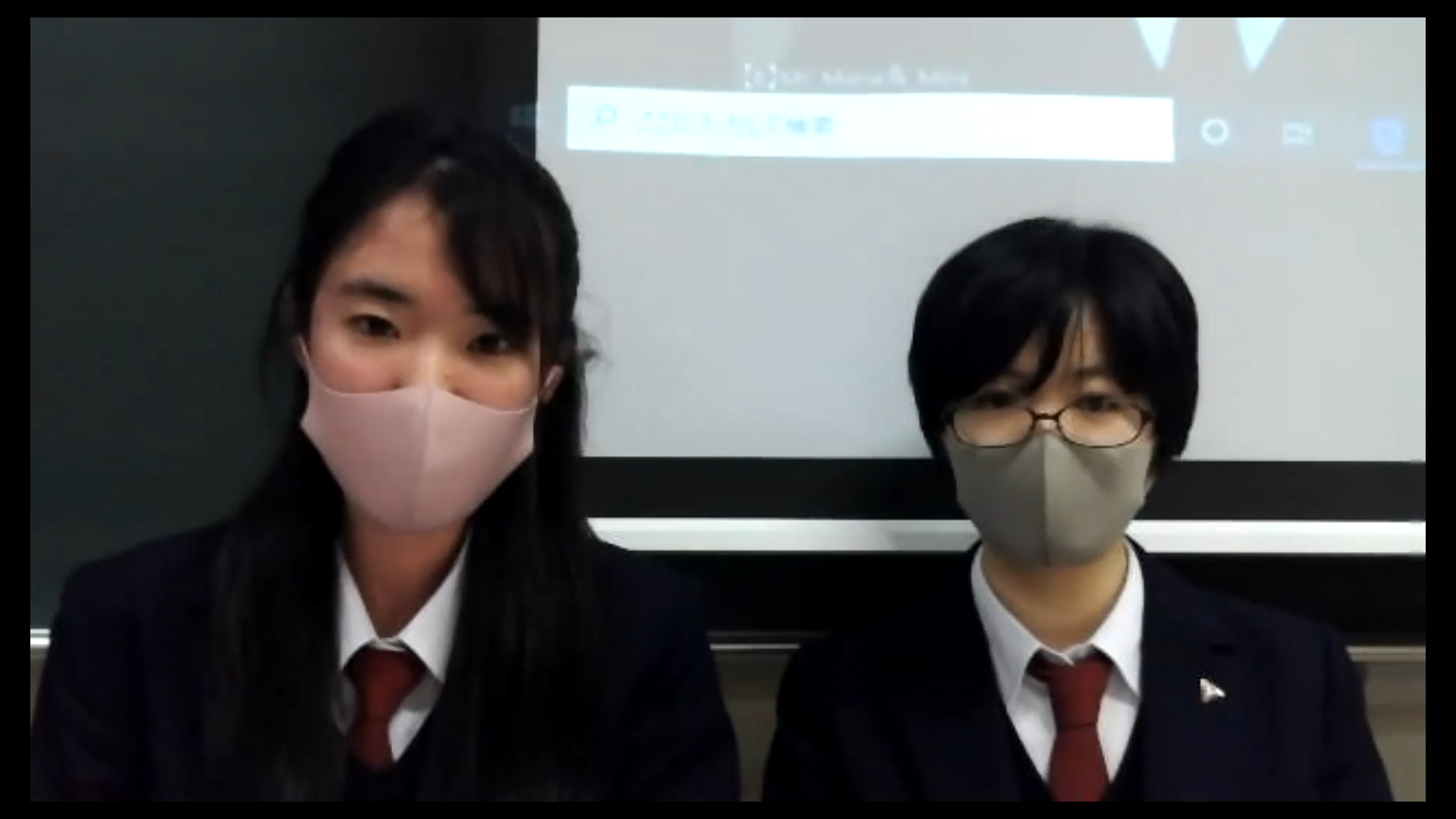

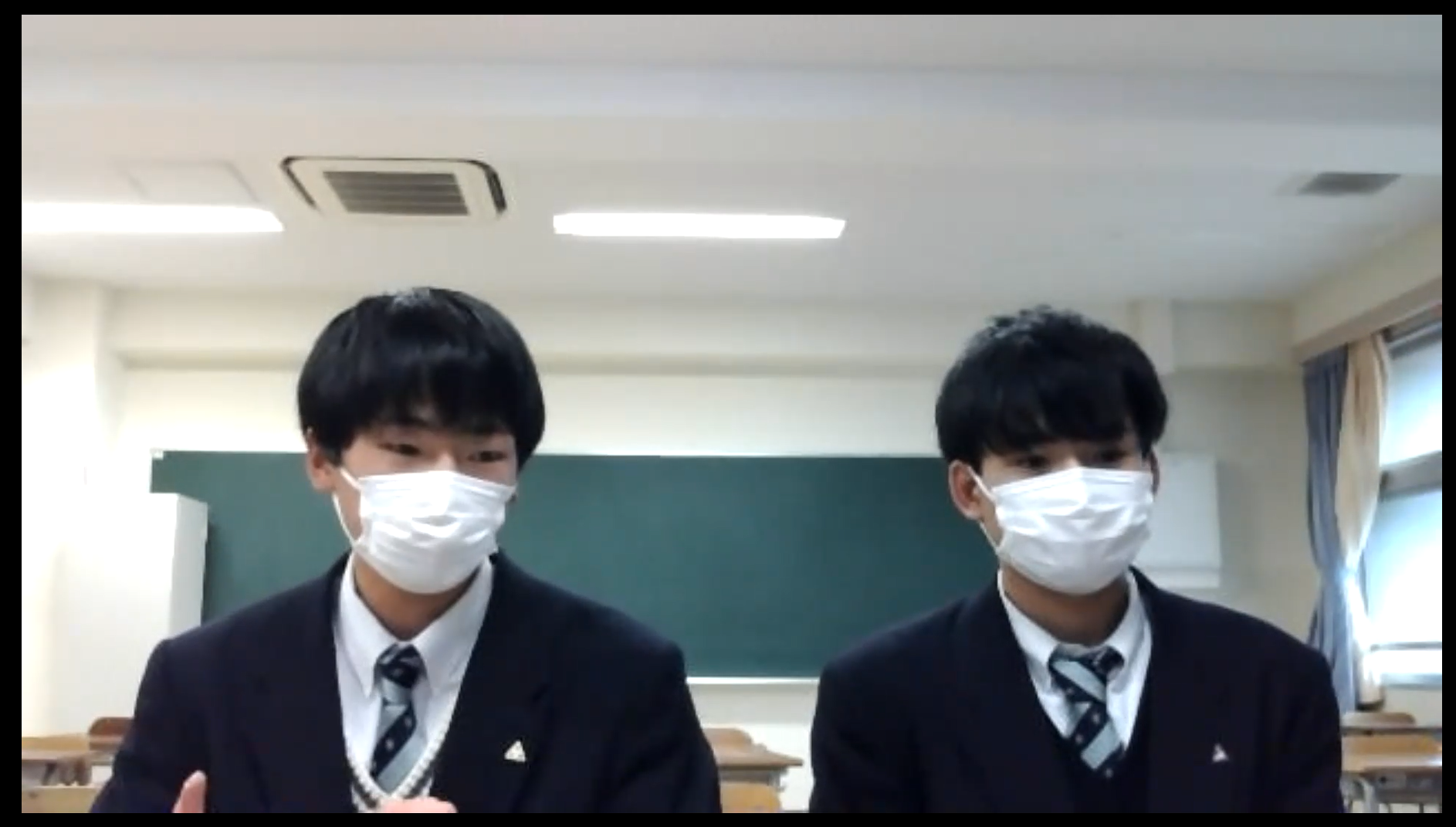
1回目の議論で場が温まってきたところで、本題の議論「神戸でのやさしい日本語の導入・普及について考えてください」です。最終的に以下の提案が発表されました。
Now that everyone had warmed up with the first discussion, we moved on to the main topic, “Think of more ways to incorporate and promote simple Japanese in Kobe.” These were their ideas:
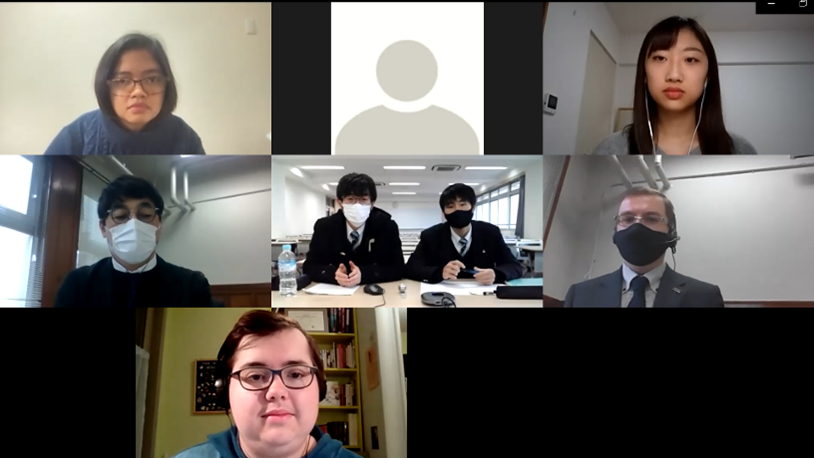
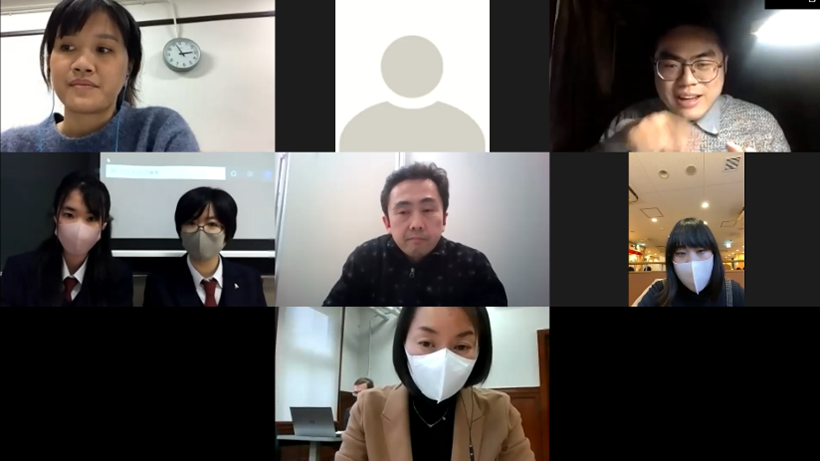
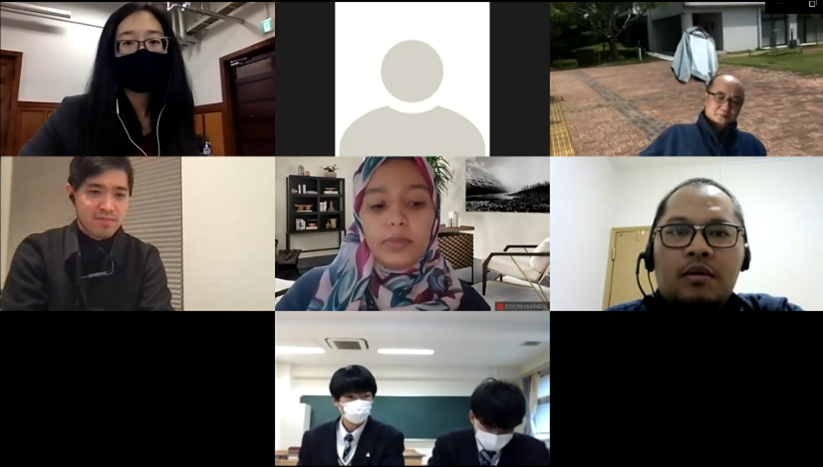
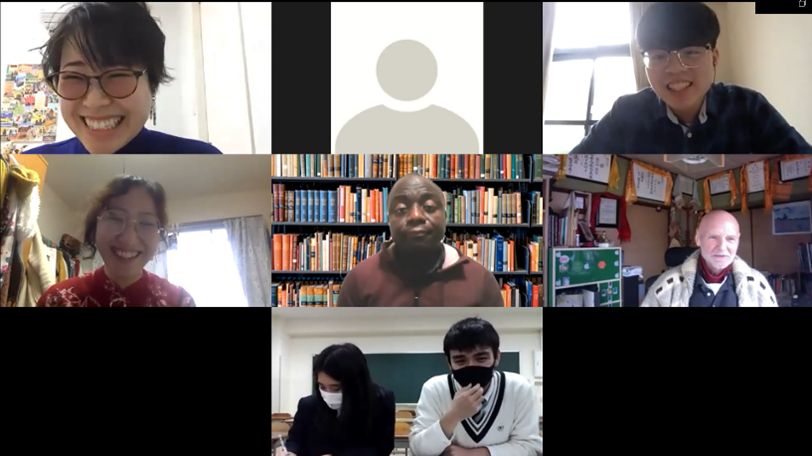
Aグループ:地方自治体での「やさしい日本語」活用と、日本人の「やさしい日本語」の理解浸透提案。
Bグループ:オンラインを活用して数世代の多文化交流、SNSでの「やさしい日本語」情報発信、教育・公共の場での「やさしい日本語」使用、「やさしい日本語」の翻訳ツール活用提案。
Cグループ:「やさしい日本語」と画像を使用したSNSでの発信提案。
Dグループ:広告及び新聞やKOBE紙(神戸市の月刊誌)における「やさしい日本語」公知提案。
Group A: More local governments need to use simple Japanese to share information, and we need to increase understanding among Japanese people of the needs and benefits of using simple Japanese.
Group B: Make online events for cultural exchange across different age groups; use simple Japanese to share information on social media; use more simple Japanese in education and public places; and develop translation tools that convert standard Japanese to simple Japanese.
Group C: Use simple Japanese combined with images to share information on social media.
Group D: Increase public knowledge about simple Japanese through advertisements, newspapers, and Kobe City’s monthly newspaper.
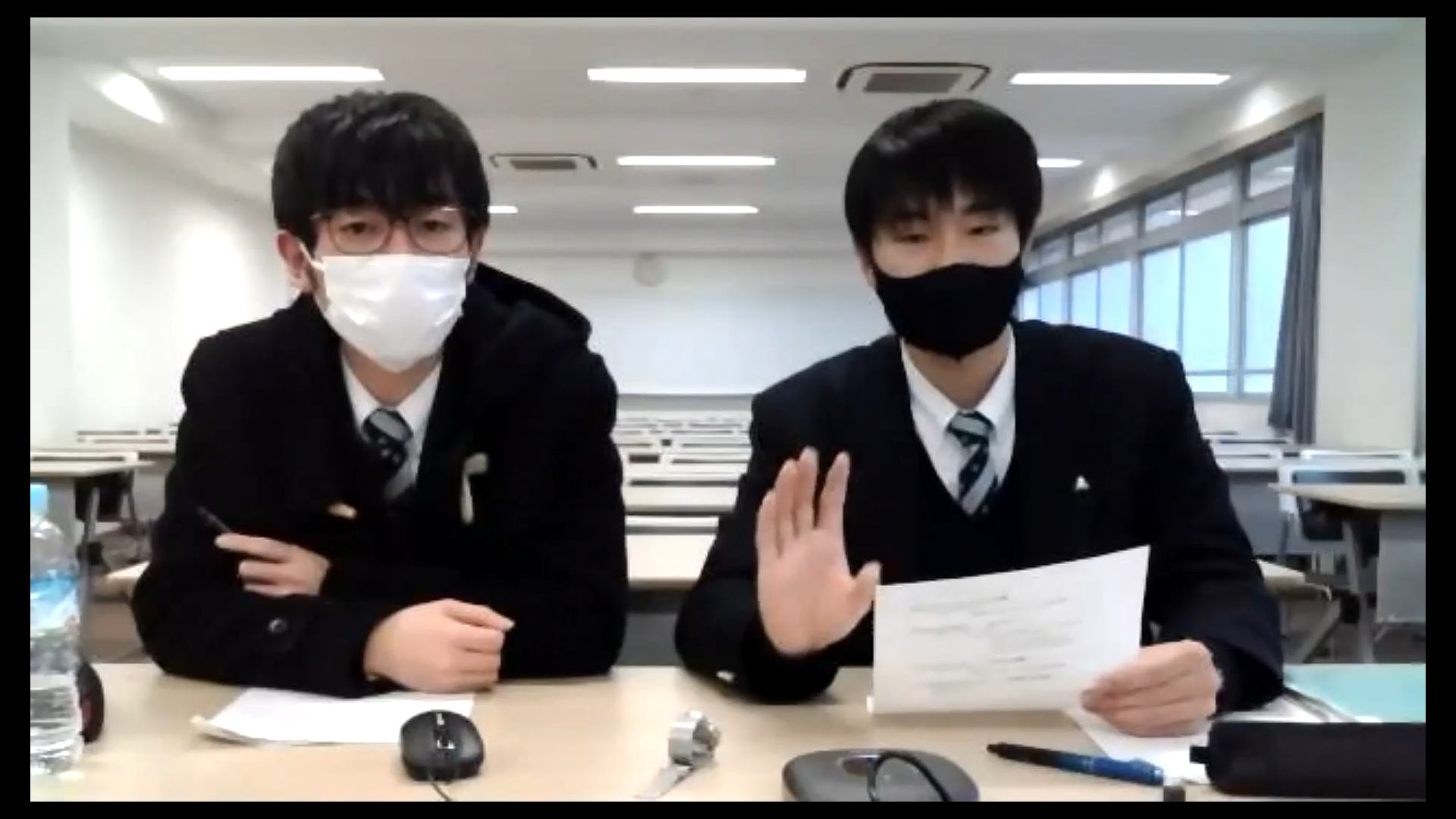
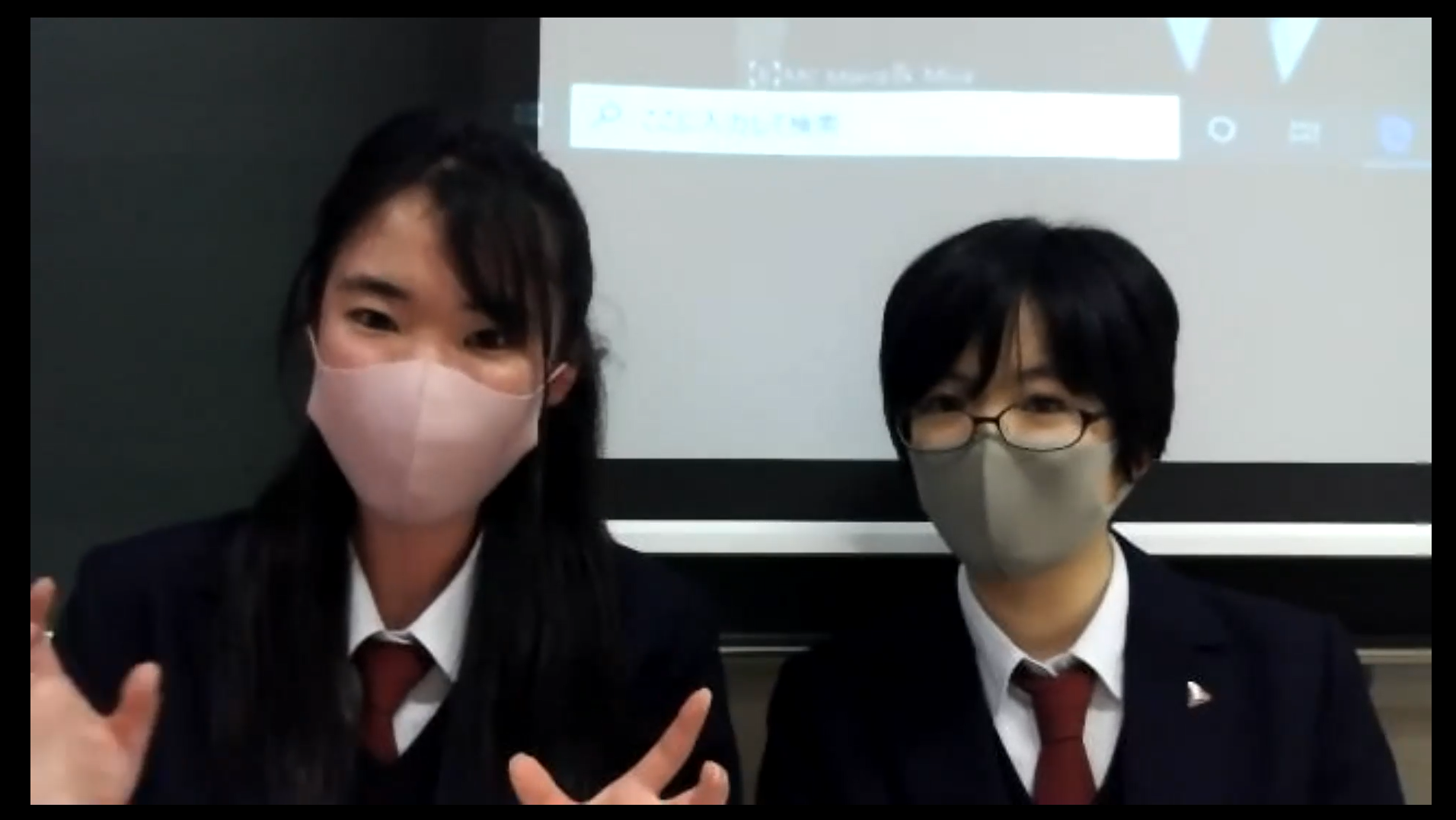
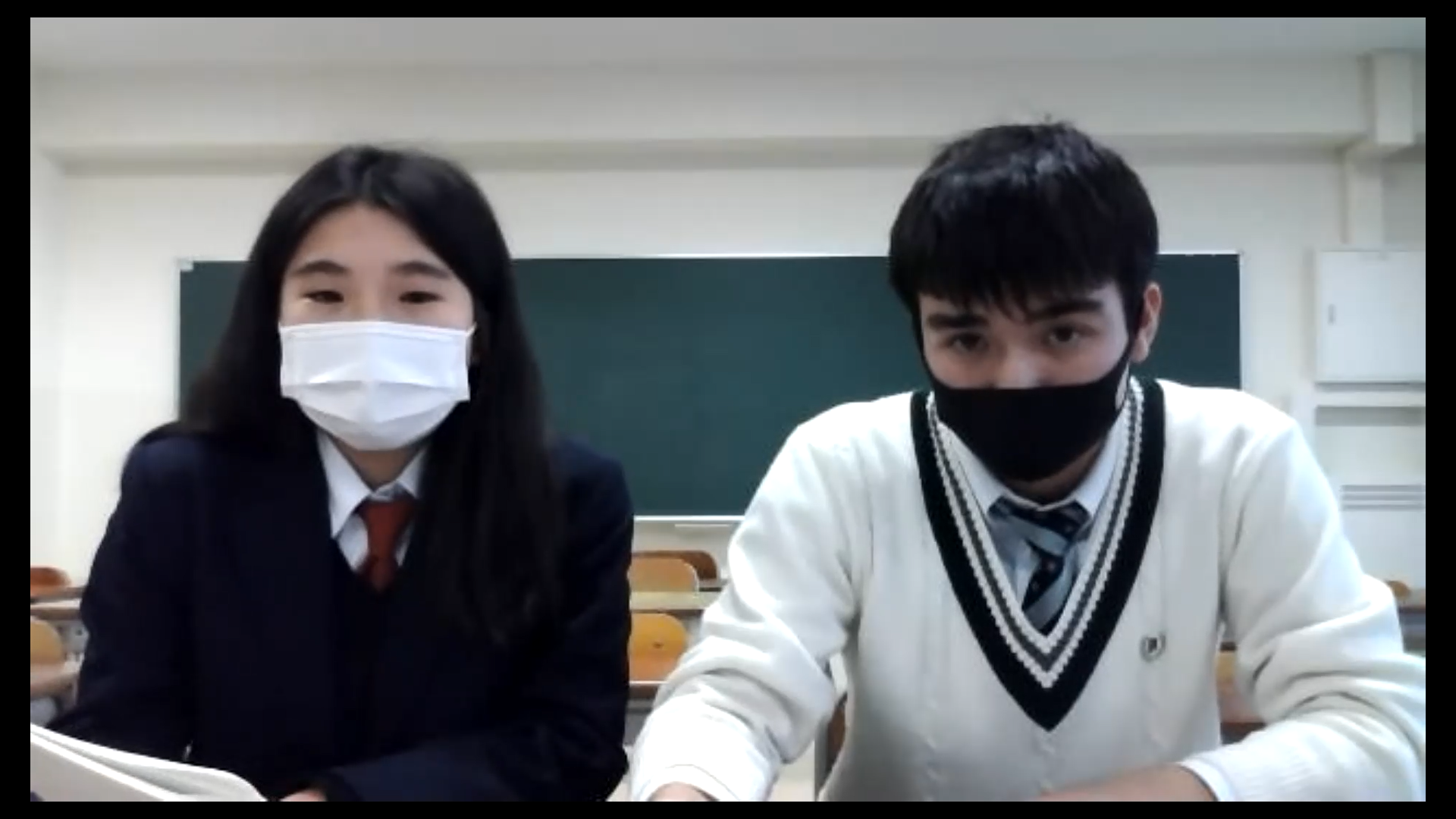
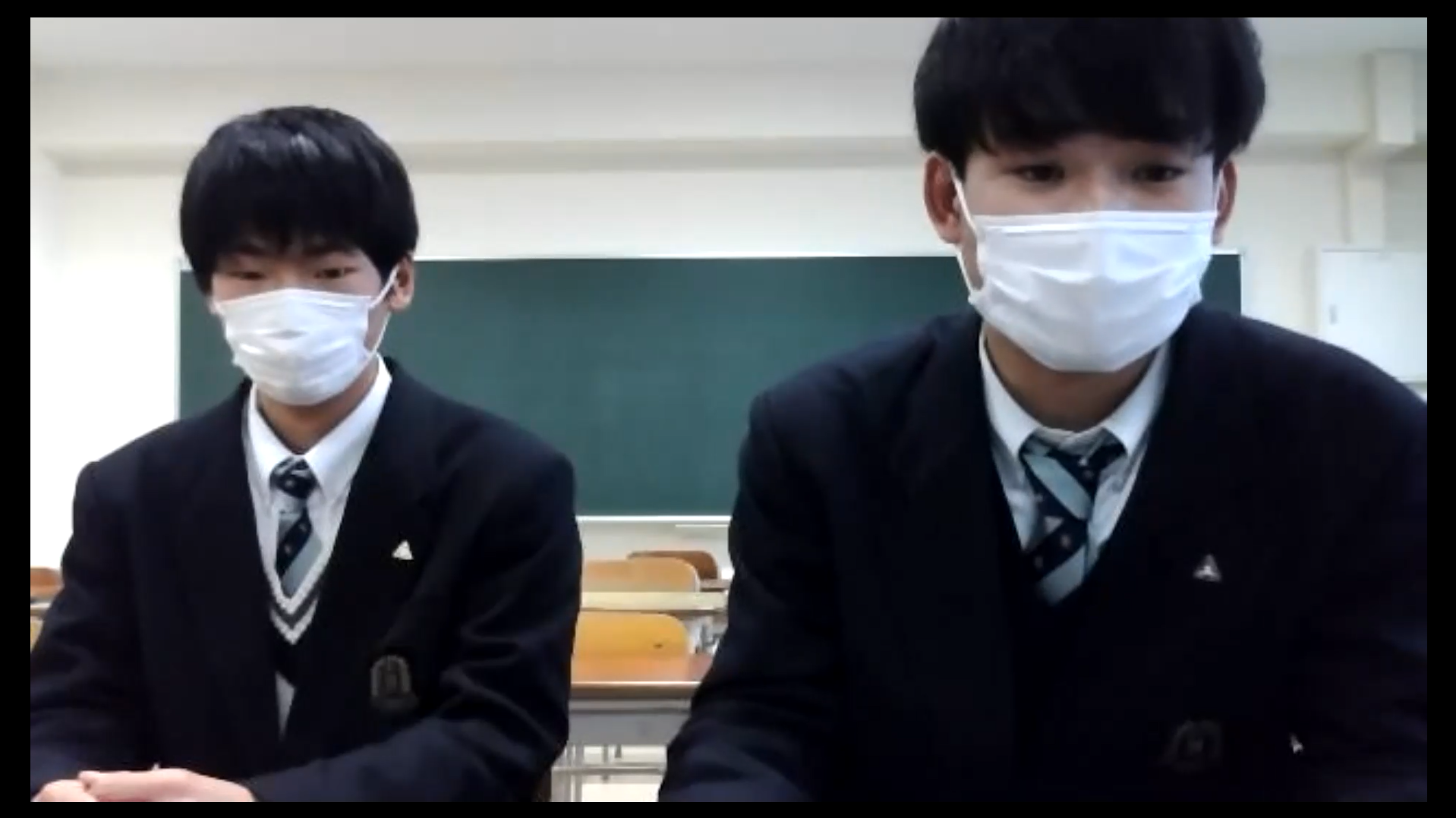
オンライン開催のため交流回は実施しませんでしたが、海外含む様々な地域から参加・議論頂き、今後「やさしい日本語」を推進していく上で非常に有意義な時間になりました。自身の思いや実体験を交え真剣にディスカッションしながらも、時に笑顔があふれていたのが印象的でした。
Although we were unable to include a mingling event due to the online format, the time spent in this forum was very productive. Many participants from all over the world were able to discuss their ideas, which will help further the development and use of simple Japanese. The participants expressed their thoughts, exchanged stories about their personal experiences, were earnest in their discussions, and found many opportunities to smile during this memorable forum.
最後に、齊藤先生とジョイさんから本日の感想を頂きました。
At the end of the forum, Professor Saito and Ms. Sung shared their impressions about the event.
齊藤先生:素晴らしい発表を有難うございました。外国人と日本人が双方活発に議論していたことが素晴らしく、それが一種の異文化コミュニケーションになっていると同時に、お互いが議論しよう、理解しようと意志を持って努める限り、言語は何であれ問題ないのだと思いました。
何名か、外国人にとっての難しさを日本人が理解しにくいということについて触れていましたが、重要なことは私たちの表現が、外国人だけでなく、全ての人にとって難しい可能性があると念頭に置くことです。
Professor Saito: Thank you for your nice presentations. It was very special to see Japanese residents communicate with foreign residents so actively in the discussions. It’s a good example of intercultural communication. The point is not what language should be used, but that we can communicate and have the will to communicate and understand each other, no matter the language.
Some students have mentioned that it’s quite difficult for Japanese residents to understand what is difficult for foreigners, but the point is to consider that the expressions we Japanese use may be difficult, not just for foreigners but for older residents and other people too.
ジョイさん:外国人と日本人双方が、自分の住んでいる、または興味の持っていることについて意見を出し合えたのが素晴らしいと思いました。自分一人で考えているだけではこれだけのアイデアは生み出されなかったと思います。
今回3つの持ち帰り事項があったと思っています。
・やさしい日本語をどう定義づけるかということ
・やさしい日本語は何であるかを全ての人が認知しており、外国人だけでなく高齢者や障害者、子どもなどにとっても意義あるものだと理解していること
・オンライン現代技術を活用しての世界規模でのディスカッション実施やSNSなどでの「やさしい日本語」発信及び活用
今日のフォーラムで得た知見やアイデアを今後の取り組みに活かし、また皆さんが学んだことを活用して周りに「やさしい日本語」を広げてくれることを期待しています。
Ms. Sung: It is always very nice to get the chance to hear from various citizens, both Japanese and foreign nationals living in or interested in living in Kobe. This is a great opportunity to hear everyone’s opinions, as it is difficult to come up with these ideas on one’s own.
I think there are three main takeaways from today’s discussion.
・We need to define and determine the standards for simple Japanese.
・We need to make sure that everyone knows what simple Japanese is and who it is for. It is not beneficial for just foreign nationals but is also for seniors, people with disabilities, children, and other Japanese people.
・We need to take advantage of modern technology and social media to promote and actively use simple Japanese.
We will try to incorporate many of your ideas in Kobe City’s future initiatives and projects. I also encourage you to promote simple Japanese among your acquaintances, and I hope the information you heard today will help you do that.
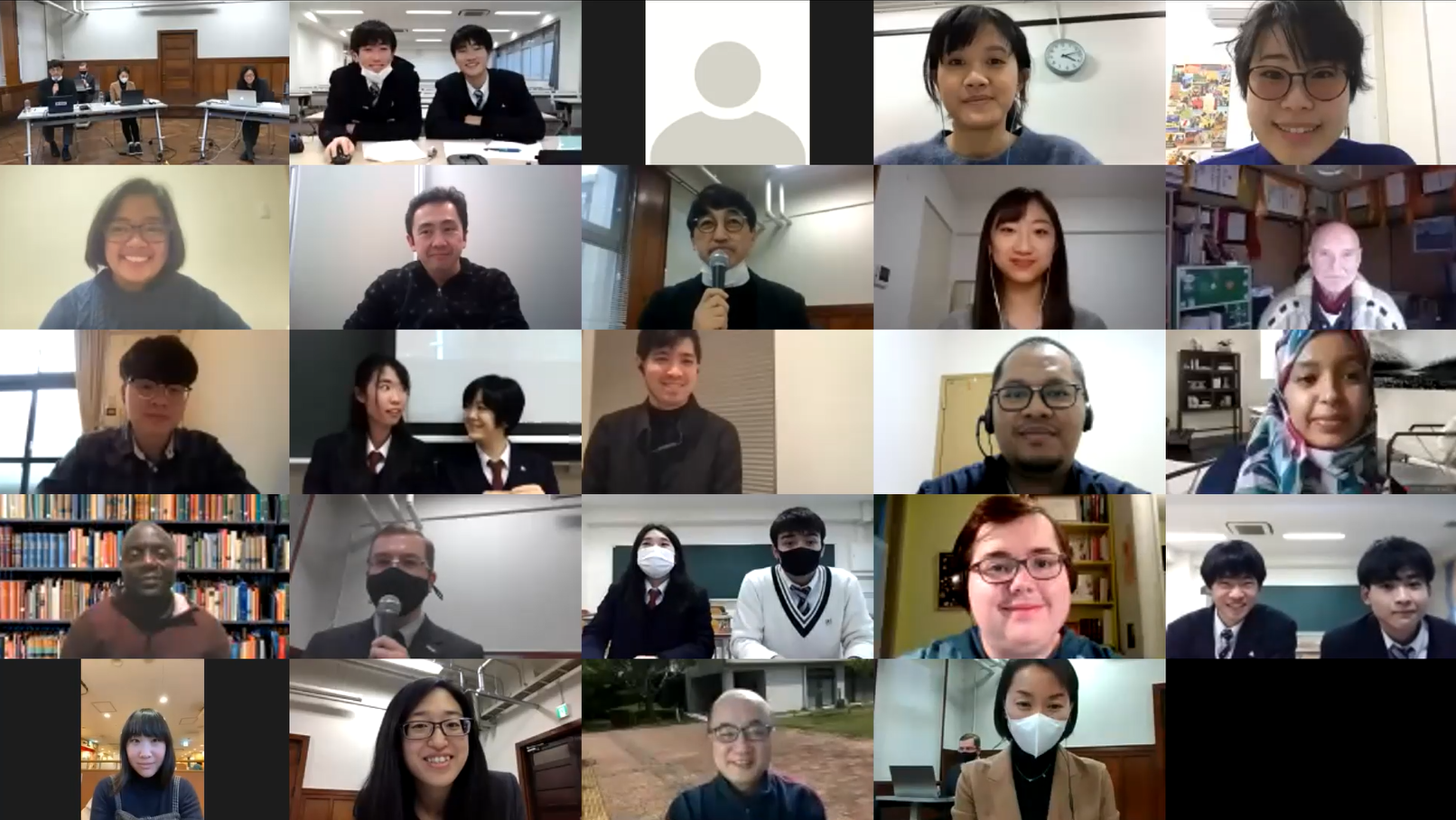
第五回神戸コミュニティフォーラム イベントページはこちら
To learn more about Kobe Community Forum ~Promoting ‘simple Japanese’ to make Kobe a livable city for foreign residents~, visit this link.(Applications have closed)